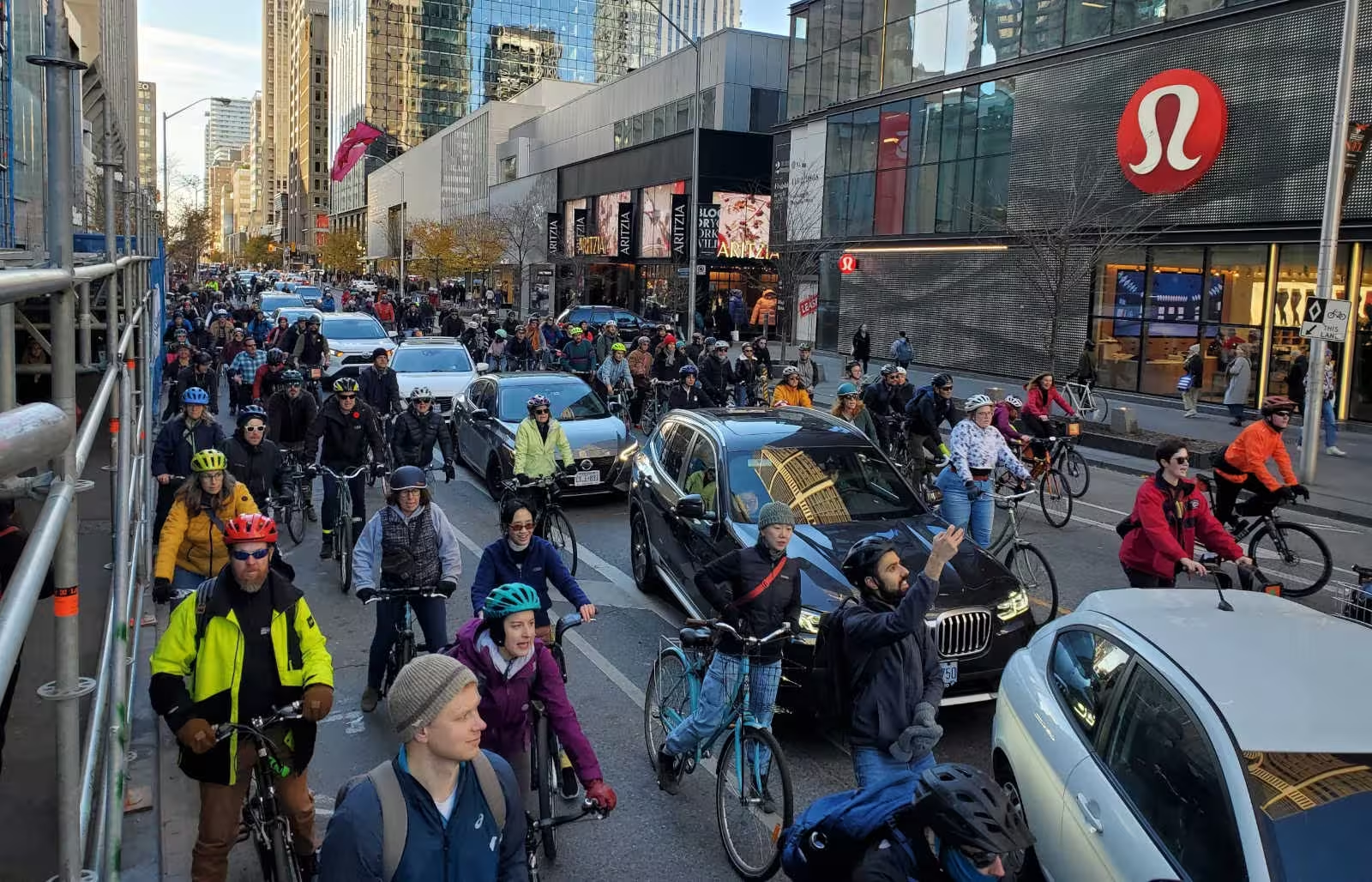On Saturday, hundreds of cyclists gathered downtown to protest Premier Doug Ford’s plan to cut bike lanes. Starting at Christie Pits, where a recent cyclocross race drew riders of all ages, the crowd pledged to stand against Bill 212.
Bill 212, officially the Reducing Gridlock, Saving You Time Act, would require provincial approval for new bike lanes on municipal roads that remove traffic lanes. It also mandates the removal of bike lanes on Bloor St., Yonge St., and University Ave. in Toronto, restoring those lanes to vehicle traffic.
Responding to the new legislation
Fight for Bikes, a grassroots organization formed in response to Bill 212, estimates that 1,500 cyclists gathered to protest the removal and restriction of cycling infrastructure across Toronto and Ontario. Premier Doug Ford’s plan includes provincial reimbursement for cities removing bike lanes, though cost estimates are not yet available. A recent Global News report noted that Toronto’s Bloor Street West bike lanes took three to four months and $4.5 million to install.
Despite new rules, this Ontario city races ahead with bike lanes
The legislation mandates removing bike lanes on Bloor Street, University Avenue, and Yonge Street and imposes stricter rules for building new lanes on arterial roads. Toronto’s phased bike lane installations, costing millions, reflect the scale of removals needed. For example, University Avenue’s lanes took nine months and cost nearly $1 million in total, while Yonge Street’s pandemic-era lanes were part of a $3.8 million citywide cycling initiative.
Margaret Parkhill, Arcadis mobility director, pointed out the complexity of removals, as sidewalks, lights, signage, and intersections were reconfigured to accommodate the bike lanes. She anticipates that removal costs will be similar to installation costs due to the required adjustments.
The province argues that removing bike lanes will ease congestion, claiming bike commuters “clog primary roads for the over 70 percent who drive,” though they rely on outdated data. However, a City of Toronto poll found that one in 10 Torontonians commutes by bike, with 70 percent using bikes recreationally or for everyday needs. Cycling advocates argue the 1.2 percent figure cited by the government is misleading, as it includes areas with minimal cycling infrastructure. Experts suggest using updated census data would better reflect Toronto’s cycling habits.
Critics argue that the funds earmarked for bike…
Click Here to Read the Full Original Article at Canadian Cycling Magazine…

